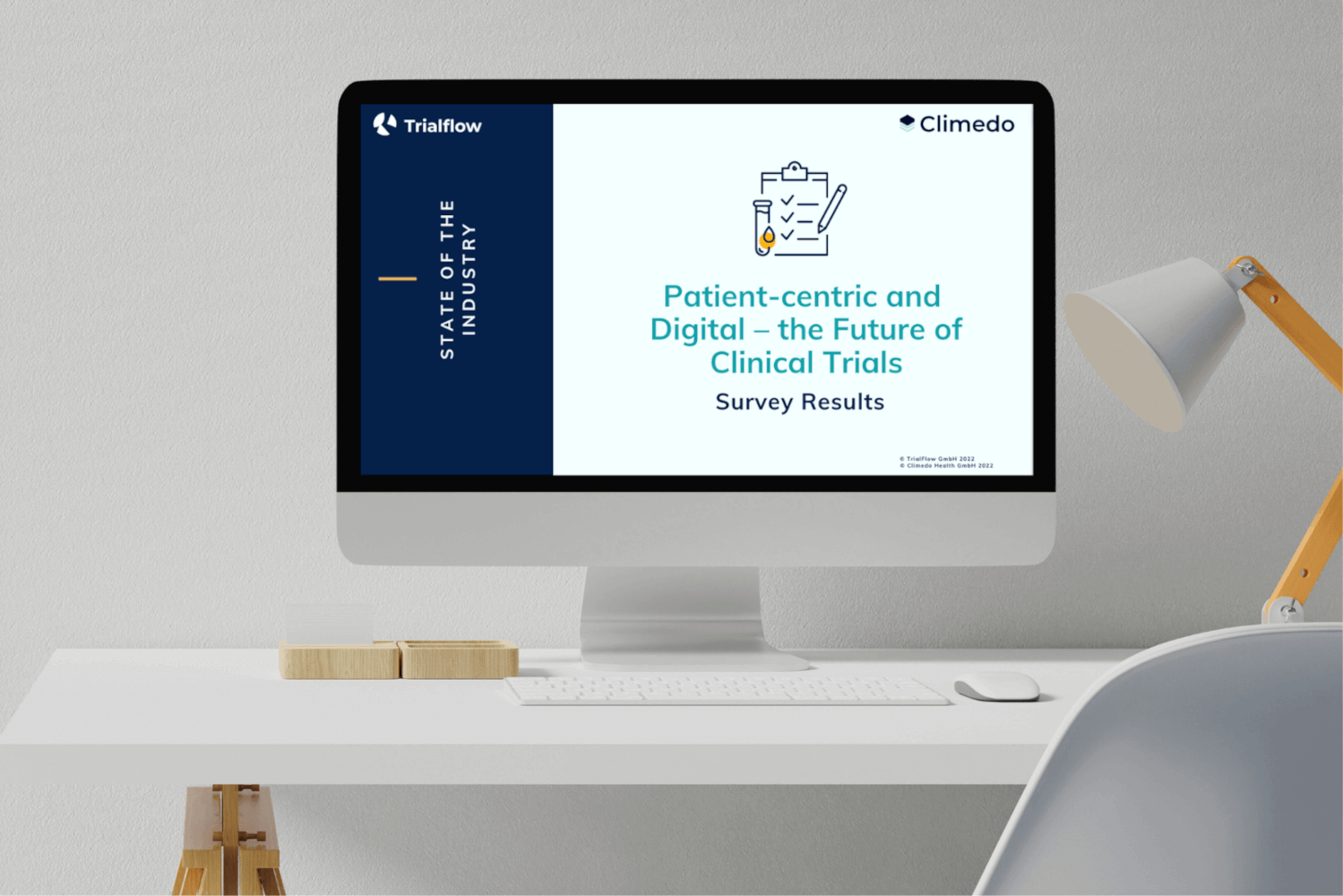How to Design Clinical Trials in Gastroenterology More Efficiently

DATE
August 25, 2022
AUTHOR
Veronika | Co-Founder & COO
Around 60-70% of the US population suffer from gastrointestinal diseases on a yearly basis. The prevalence of gastrointestinal disorders makes this area of medicine ideal for clinical trials. But although they represent an important tool in the development of new and innovative treatments and medicines, they are often laborious and inefficient.
While more and more treatments are being approved, greater availability of established therapies reduces the willingness of patients to participate in clinical trials. Furthermore, strict trial schedules place a heavy burden on participants and lead to declining recruitment rates. With an increasing number of investigational products, the demand for study subjects also increases, which already exceeds the available patient pool in inflammatory bowel diseases.
Modern study concepts offer the opportunity to increase the willingness to participate and the success rate of studies in gastroenterology. This is positively influenced, for example, by integrated phases and adaptive study designs, early assessment of pharmacodynamic effects using biomarkers and target engagement, and objective disease assessment by endoscopy and histology.
In this article, we will show you how to design your gastroenterology clinical trials more efficiently and patient centric.
4 tips to improve your gastroenterology study:
1) Use virtual health solutions
2) Increase patient centricity
3) Involve advocates
4) Encourage adaptive designs
1) Use virtual health solutions
The prospect of frequent visits to the doctor deters many patients from participating in a trial. This factor was cited by 69% as the biggest hurdle to study participation, even before blinding of the study (46%) or unpleasant examinations such as a large colonoscopy (55%). Especially in rural regions, gastroenterological care is very patchy, meaning that patients must travel long distances for on-site appointments and thus have to put up with high costs and time expenditure.
The good news is that there is already an efficient alternative: During the Covid-19 pandemic, virtual health concepts and remote monitoring proved their value in gastroenterology, too. In order to keep the risk of infection for patients and staff as low as possible, doctors increasingly offered teleservices and hospitals gained experience with remote consultations. Study sponsors were forced to embrace digital solutions such as eConsent, Electronic Patient-Reported Outcomes (ePRO) and Electronic Data Collection (EDC) systems.
It is now clear that all stakeholders benefit from digital trial designs. On the one hand, patient satisfaction and adherence increase, because participation is associated with lower effort for them – regardless of where they reside or how mobile they are. The study site, on the other hand, benefits not only from long-term committed participants, but also from higher data quality.
2) Increase patient centricity
Recruiting suitable patients for clinical trials in gastroenterology is becoming increasingly difficult. The more treatment options become available, the lower the willingness to participate in studies. This is especially true when a conventional therapy involves significantly less effort for patients compared to a clinical trial. In addition, classical study concepts are often not well aligned with the needs of the patients, which also has negative effects on the willingness to participate.
So how can you make clinical trials more attractive despite the growing range of therapies? In addition to digital concepts that generally facilitate participation, it’s important to take the patients’ needs into account. For example, blinded studies tend to have a deterrent effect. In contrast, the interest in a gastroenterological study increases significantly if hardly any or no placebos are used. The prospect of subsequent participation in a long-term extension study is also well received by patients.
Our cheat sheet for gastroenterology shows you how to improve patient centricity in your clinical trial and thus increase both willingness to participate and adherence to treatment in the long term.
Survey Results: Patient-centric and Digital – the Future of Clinical Trials
Together with Trialflow we conducted a survey on digital and patient-centric solutions in clinical trials in fall 2022. The survey addresses the following areas:
- Status Quo
- Challenges
- Trends and prospects

3) Involve advocates
Clinical trials in gastroenterology are often very stressful for patients. For example, in contrast to many other diseases, patients with gastrointestinal diseases still have to travel regularly to the study site for blood and stool tests. Due to the low availability of sites, this means long journeys for many participants and thus an enormous expenditure of time. Such requirements make recruitment more difficult and cause patients to drop out of a study or treatment prematurely.
To avoid this, you should include the patient pool in the study design from the very beginning. Select patients who will give you regular feedback on the progress of the study and their individual needs. In this context, it is worth investing resources in technologies that make it easy and convenient to collect health data from home – e.g. wearables or ePRO. This way, the expressed concerns and wishes of the advocates help to improve the acceptance of the study design within the entire patient pool.
4) Promote adaptive designs
Whether it is effect size, variance or sample size, traditional study designs often require rigid assumptions. Once fixed, they are set in stone and quickly lead to laborious and inefficient procedures in the course of the study. For example, an estimated 45% of Phase III trials fail to find the safest and most effective dose of a drug because inaccurate dose-response curves from in vitro or animal studies are used as fixed baseline assumptions.
Although they have hardly been used in gastroenterology so far, adaptive study designs promise improvement here. This is because new findings obtained during the test phases can be taken into account with this methodology. In adaptive dose-finding, for example, the treatment is continuously adjusted on the basis of the data collected from the participants in order to determine the optimal dose. Due to their flexibility, adaptive designs thus promise higher accuracy and efficiency of the study.
[h2] Conclusion: Modern study concepts increase the efficiency of studies in gastroenterology
The need for more efficient study designs in gastroenterology is evident in every respect. For example, due to the specification of individual therapies, fewer and fewer patients are suitable for participation in a particular study. In addition, low recruitment rates are driving up the cost of drug development.
To improve the efficiency of your gastroenterology trials, incorporate virtual health solutions that increase patient centricity, incorporate feedback from advocates and focus on adaptive designs. Finally, the trend towards telemedicine during the Covid-19 pandemic has already shown that predominantly virtual consultations and accurate data collection are not mutually exclusive. If the preferences of the participants are also taken into account, this facilitates recruitment, prevents premature study discontinuations and at the same time serves as a valuable driver for the development of new approaches. Adaptive study designs also save resources – and nerves – of everyone involved.
The necessary steps to make your clinical trials in gastroenterology more efficient can already be implemented today .The technology and infrastructure for electronic consent (eConsent) and data capture (EDC) are already well developed. However, modern and efficient trial designs require the courage to turn your back on traditional, and often outdated, trial designs. We are happy to support you in this process with our digital solutions. Reach out to us or schedule a free software demo. We look forward to hearing from you!






